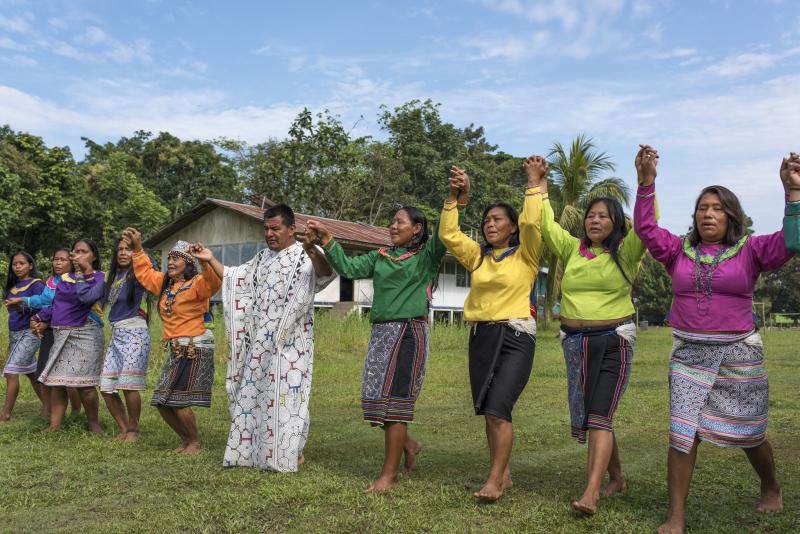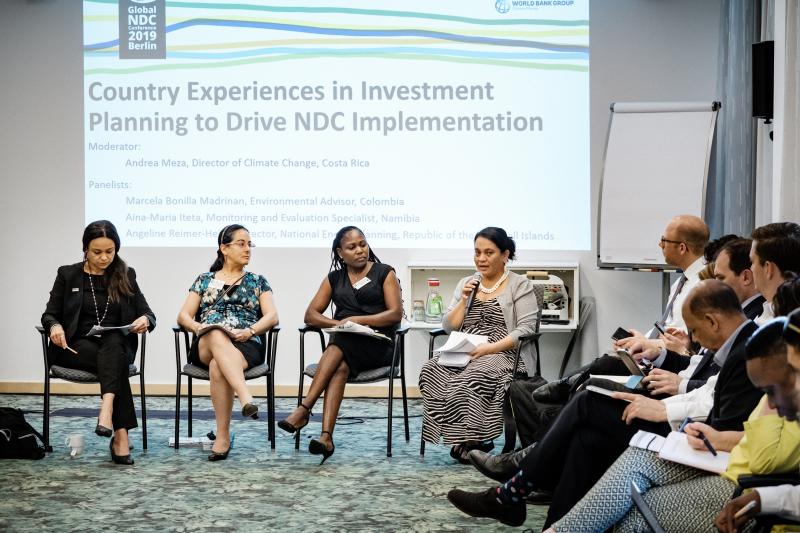What
For climate action to be effective and sustainable, it is essential to integrate gender equality considerations into mitigation and adaptation interventions. This means developing climate interventions that respond to the different concerns and needs of women and men, empowering and engaging women in decision making, and harnessing the knowledge and contributions of both halves of the world’s population. In this way, countries can develop more effective solutions that benefit the whole of society, and generate climate outcomes that have far-reaching, long lasting impacts.
Countries frequently do not have the technical know-how or financial resources to mainstream gender equality into NDC implementation plans. Meanwhile, member countries are requesting gender support. Country have asked for support to undertake gender analyses; integrate gender equality considerations into climate plans, policies and budgets; develop monitoring and accountability mechanisms that track gender progress; improve gender balance in training, economic opportunities, and decision making; and carry out gender stakeholder consultations. And many of these country requests are being met by the NDC Partnership’s development partners through the Partnership.
How
Supporting gender-responsive climate action is a key focus area of the NDC Partnership as elaborated in its Gender Strategy (also available in Spanish and French) and summarized in this blog. The Partnership, which counts leading global institutions, technical agencies, and development partners among its members, works to expand access to technical gender assistance by matching country requests with technical assistance from development partners.
-
At country level, the Partnership supports a country-driven process to advance gender equality in NDC implementation plans, emphasizing five main pathways for action: engaging gender stakeholders in climate consultations, including sex-disaggregated data and gender-related indicators in NDC implementation and investment plans, utilizing gender analyses, impact assessments and national gender frameworks, strengthening in-country technical capacity for gender mainstreaming, and finally, using gender data and analyses along with strengthened gender capacities to inform gender-responsive NDC planning.
-
Through its knowledge and learning work, the Partnership works to facilitate the replication and scale up of gender-responsive climate action by providing easy access to gender-related knowledge, tools and resources on its Knowledge Portal; sharing effective gender mainstreaming practices and lessons through knowledge products, peer exchanges, Partnership briefings, and webinars; and communicating stories about women as active change agents.
Learn More
Additional Resources—
Practical Guides:
-
Developing Gender Responsive NDC Action Plans (March 2021); Also available in Spanish and French
-
Mainstreaming Gender Equality in the NDC Partnership Country Engagement Process - Infographic (March 2021)
-
Mainstreaming Gender Equality in the NDC Partnership Country Engagement Process (May 2021)
Insight Briefs:
-
Gender and Finance in the NDC Partnership (October 2022)
-
Supporting Gender-Responsive NDCs: Gender Integration in NDC Partnership Member Countries (March 2022)
-
Building Gender-responsive NDCs (September 2020)
Relevant blogs:
-
Developing Gender-Responsive NDC Action Plans: A Practical Guide for Policy Makers and Practitioners (April 2021)
-
Implementation of the NDC Partnership Gender Strategy: Trends in Countries’ Gender Requests (September 2020)
-
The NDC Partnership Gender Strategy – Catalyzing More Impactful Climate Action (October 2019)
-
Five resources to help you link gender and climate action (March 2019)
Videos:
-
NDC Partnership Gender Strategy (Oct 2019)


